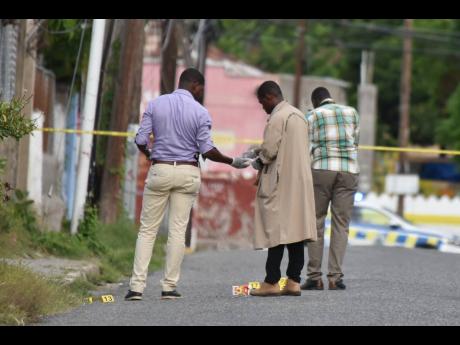The second was about imprisonment and the inhumane circumstances that do nothing to rehabilitate inmates. The prison conditions will harden most convicts. Those that are released back into a naïve society, a society that expects them to be somewhat rehabilitated, will eventually make that society pay the ultimate price for the failure of the system
I came across examples of both ends of the crime continuum recently. The first was about a terrible father who was inculcating his seven-year-old son into dealing with disagreements by employing extreme violence, and the complicit, perhaps fearful mother who did nothing to discourage it.
The second was about imprisonment and the inhumane circumstances that do nothing to rehabilitate inmates. The prison conditions will harden most convicts. Those that are released back into a naïve society, a society that expects them to be somewhat rehabilitated, will eventually make that society pay the ultimate price for the failure of the system.
Studies have been done, and studies are always ongoing to elucidate and ‘treat’ criminality. Our local experts in anthropology, psychiatry and psychology have all weighed in on this serious ‘disease’ at one time or another. So, we know what to do, but we are dawdling. In the meantime, we focus most of our efforts on the end result of the disease of crime – the violence producers, apprehending them, incarcerating them so that we can punish them, and release most of them right back into the same environment that spawned them in the first place. And then we seem shocked and horrified when they re-offend.
We do comparatively little to shield our underprivileged children from all kinds of violence and abuse. They grow up bombarded by violence day and night. There is violence in the homes, in the tenement yards, in the communities, in the streets, in the ‘music’, and in the schools. These children constantly hear loud and aggressive quarrels, threats, the filthiest curse words imaginable, screams of pain/terror, and gunfire. They see violence and death up close, and become desensitised to them.
ABANDONED Added to that is the unmistakable feeling of being abandoned by society. They are made to feel like living ghosts, nobodies, inconveniences to society. Nobody wants to get close to them, to show them love, to offer a gentle, consoling touch. They only seem to matter when they can vote, when they pay taxes, when they provide minimum-wage labour, or when they commit a crime. All of a sudden everyone knows their names, everyone knows how to describe them, and everyone wants to lay hands on them.
Headlines Delivered to Your Inbox Sign up for The Gleaner’s morning and evening newsletters.

